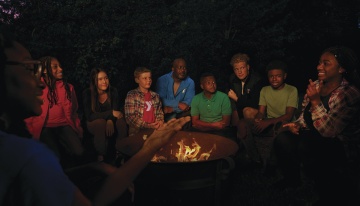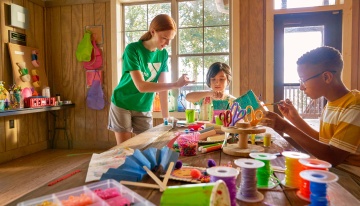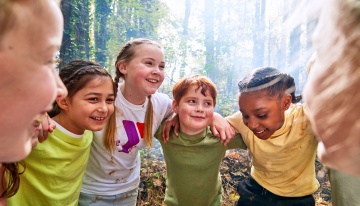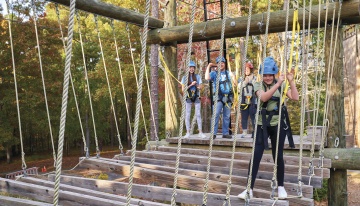camp tips
Going away to camp can be a challenging experience for a child at any age. Short-term separation from caregivers and learning to be independent are important parts of growing up! Help your child feel more comfortable leaving for overnight camp with these helpful tips.
- Talk about how to ask for help and from whom. While you can talk about this with your child before camp, make sure to also introduce your child to their counselor during check-in. Example: “This is Josh. He is here to help you. If you need anything, ask Josh!”
- Address camp hygiene. Taking good care of your body may look different while at camp. Talk about what this means for your child and practice wearing protective hairstyles for water activities, showers and safety helmets. It can be helpful to look into what food choices will be available.
- Model confidence. Showing confidence in your child’s ability to cope with life at camp can go a long way to combat their anxiety and yours.
- Focus on the positive aspects of camp. Remind your child of the potential friendships and exciting activities in store for them. It can be helpful to go over schedules and itineraries so they know what to plan for and look forward to.
- Meet anxiety with resilience. Don’t bypass or minimize fears and anxieties. If homesickness or making friends is causing your child stress, consider sharing a story of your own resilience as a kid. Talk about helpful coping skills they can use while they’re away.
Tips for preventing homesickness:
- Pack together! Knowing how their belongings are organized can help campers feel more settled and prepared.
- Talk to experienced campers or call the camp office to address any questions.
- Arrange overnight stays with friends or relatives to practice sleeping away from home.
- Avoid suggesting phone calls. Instead, send encouraging letters focused on camp activities. Consider leaving a letter with staff at check-in so it’s there on day one. Letters can also reassure campers that pets and family members are well and excited to hear about camp when they return.
Tips for making new friendships:
- Be open and approachable by smiling and making eye contact.
- Introduce yourself to those in your group or cabin. Ask about their interests and practice your listening skills before talking about yourself.
- Offer help to others when needed, whether it’s setting up a tent or sharing supplies.
- Be inclusive. Invite others to join in on activities or games, especially those who may seem shy or left out.






